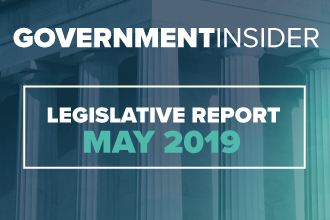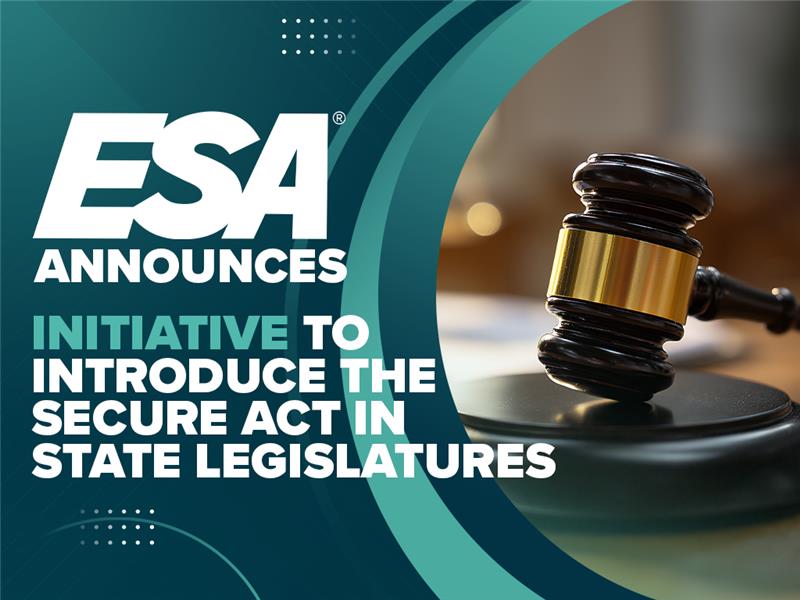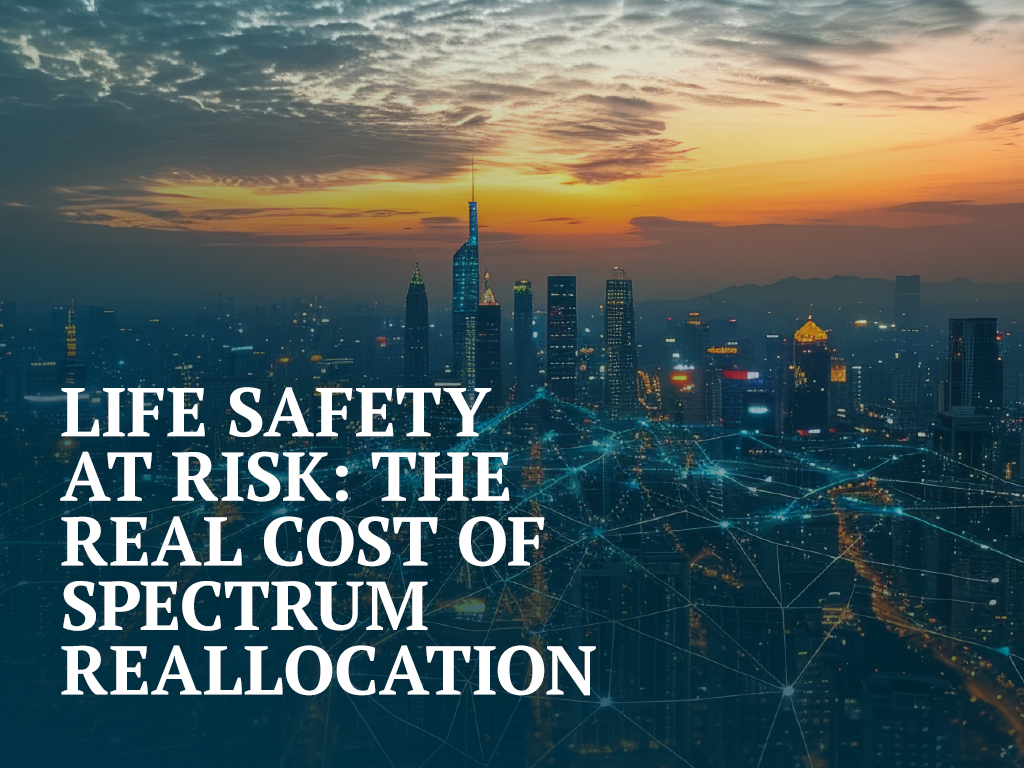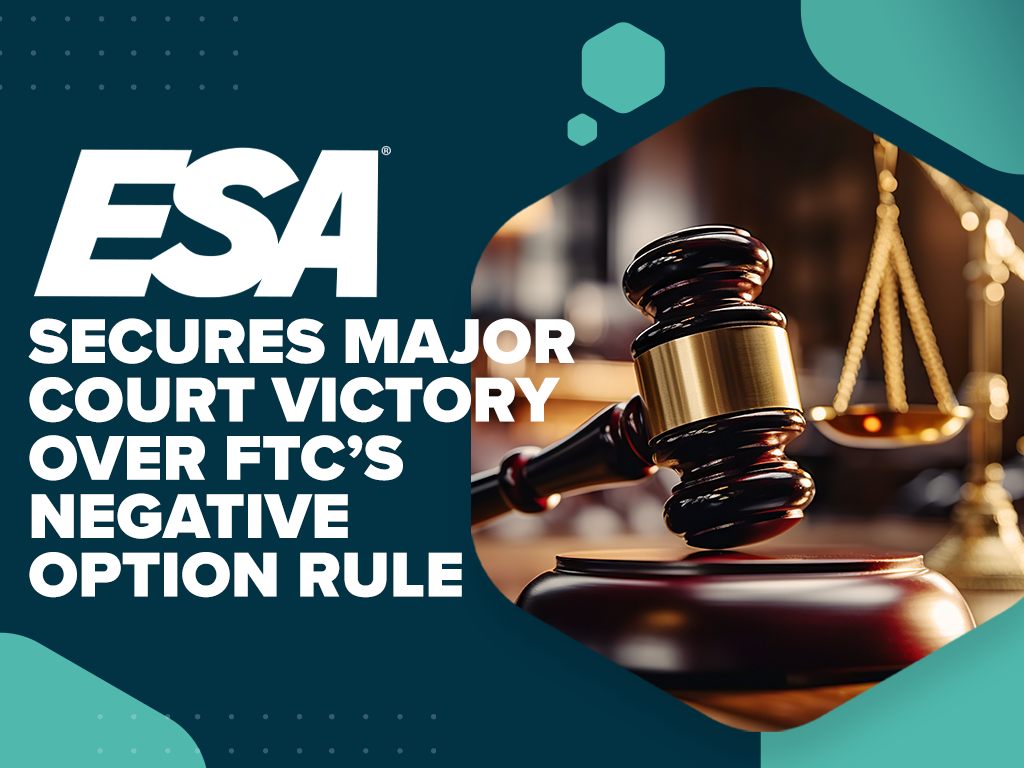Legislative Report – May 2019

FEDERAL
Federal legislation in the last month demonstrates the wide divide that exists in Congress. Some bills, such as H.R. 2571 create a “National Right-to-Work Act,” effectively barring unions from forcing union membership or agency fees on employees who work for companies with collective bargaining contracts.
Other bills, like H.R. 2474 and S. 1306, would expand union control within the National Labor Relations Act and among many provisions would expand "joint employer" definition to include two or more employers who co-determine control over an employee and includes instructions for courts or the NLRB to consider direct and INDIRECT control over an employee’s terms and conditions of employment.
This bill also expands the definition of employee to call into question the definition of independent contractors.
Other bills in this report address school security, “Buy American,” robocalling, workforce development and paid family leave.
Only one has passed either chamber in Congress. S. 151, cited as the "Telephone Robocall Abuse Criminal Enforcement and Deterrence Act" (TRACED Act) will create a call authentication framework for all calls made through a voice service.
This bill passed the Senate on May 23rd and was forwarded to the House.
DOWNLOAD THE MEMBERS-ONLY FEDERAL LEGISLATIVE REPORT FOR MAY 2019
STATE
The month of May is pivotal in several state legislatures as they conclude their business and the rush to pass or kill bills intensifies until sine die. May saw 31 tracked bills enacted into law and 41 bills fail or die as the session ended. Some of the key pieces of legislation we tracked during the month include bills harmful to businesses that engage in public works contracts, legislation providing school security funding and bills impacting licensing requirements. Many other bills moved or died this month, so read through the list in your state(s) for specifics and the latest status.
Colorado SB 19-156, which contained language in the fiscal note that suggested security and other low-voltage systems would be subject to licensing within the electrical licensing statute was amended several times in a very short period. However, on April 30, a re-revised version was passed in the House and then concurred in the Senate to exclude Class 2 or Class 3 power limited systems according to the National Electrical Code from licensing requirements under the Electrical Code. This bill was enacted on May 29, 2019
Colorado SB 19-196 adds several required evaluation factors including the craft labor staffing plan for the project bidder and subcontractors, the anticipated utilization by the bidder and its subcontractors of apprentices registered with federal or state apprenticeship agencies to complete the work under the contract, and the safety plan and safety record of the bidder and the bidder's subcontractors. It will require bidders for contracts over certain financial thresholds to demonstrate use of approved apprenticeship programs for labor used to complete the project. This bill was enacted on May 28, 2019.
Indiana SB 127 will create a "school safety referendum tax levy fund" that will provide funding for comprehensive school safety programs including school emergency response systems and the purchase of equipment and capital expenses to improve the safety of a school building and grounds. The amount is determined by local governing body and subject to approval by voters. This bill was signed by the Governor on May 6, 2019.
Illinois HB 2643 would allow seniors over 65 years of age to cancel any home repair or remodeling contract that was initiated through an in-person sale at the residence of the consumer, i.e. door-to-door sales, for up to 15 days after the sale. This bill passed both chambers in the legislature on May 30, 2019.
Nevada passed its version of a project labor agreement bill, requires a contractor or subcontractor engaged on a public work to employ one or more apprentices for a certain percentage of the total hours of labor performed on a public work, depending on the type of work performed. SB 207 was enrolled and delivered to the Governor on May 30, 2019.
New Jersey SB 3634 was introduced on May 13, 2019 and it expands current provisions on the payment of prevailing wages in public works projects. It requires contractors to create more detailed documentation of wages for each worker and if a worker is engaged in multiple trades, the contractor must pay the higher prevailing wage unless specific hours for each job are documented, among other provisions
North Carolina HB 686 requires a separate automatic contract renewal disclosure form with conditions on automatic renewal. Also provides an "out" clause for consumers who permanently relocate to assisted living or similar circumstances.
North Dakota HB 1157 originally filed to add fire detection systems to the current license requirements for electricians. The engrossed version was changed to delete fire detection systems and low-voltage systems, but retains exemption for "security" systems among other low-voltage systems. After passing the House, the bill was amended to create a whole new power limited electrician license. Exemptions for most low-voltage applications are included, but wide latitude for board to expand regulatory over power limited classifications creates concern about the direction of licensing in the state. This bill was amended, passed the Senate, went to Conference Committee, was concurred by both Houses and sent to the Governor in just one week. It was signed by the Governor on May 2, 2019.
Tennessee SB 1443, will prohibit local jurisdictions from forcing alarm companies to collect end-user permit fees or fine alarm companies for false alarms. It was signed by the Governor and enacted on May 13, 2019. This bill worked on with great support from the Tennessee Electronic Security Association. Congratulations Tennessee!
Texas SB 616 would abolish the Texas Private Security Board and transfer its duties to the Department of Public Safety under the Public Safety Commission. It would reconstruct the board as an "advisory committee" under the control of the commission. Members of this "committee" would be appointed by the Public Safety Commission. The Texas Burglar and Fire Alarm Association lobbied to have the "salesperson" license requirement preserved in the bill, but that effort failed as the House passed the bill on May 17, 2019 with the salesperson licensing requirement removed. The bill was enrolled and sent to the Governor on May 28, 2019.
DOWNLOAD THE MEMBERS-ONLY STATE LEGISLATIVE REPORT FOR MAY 2019




